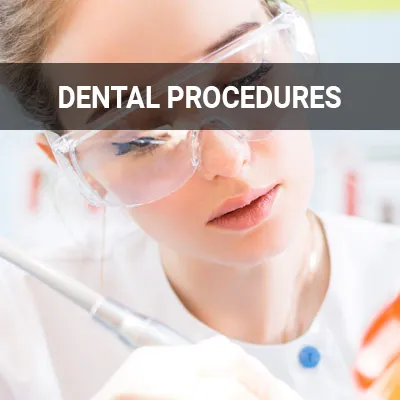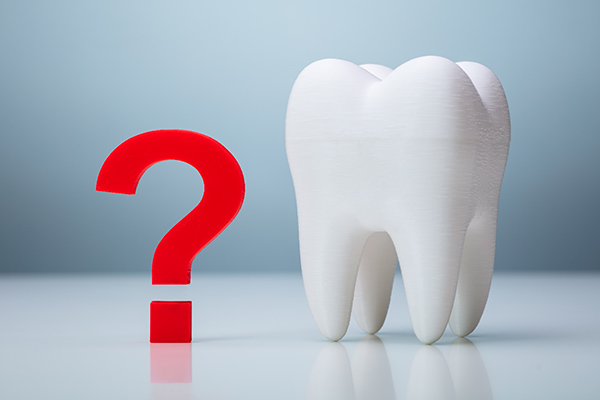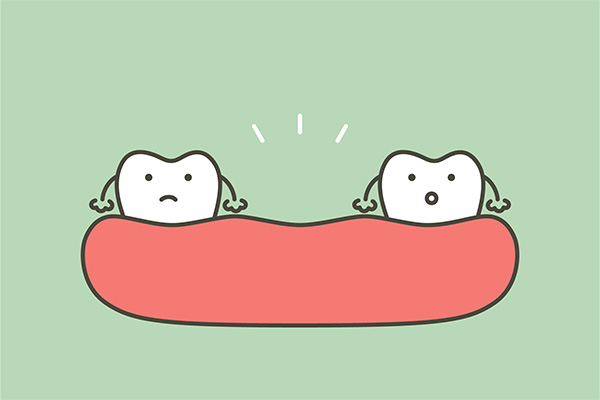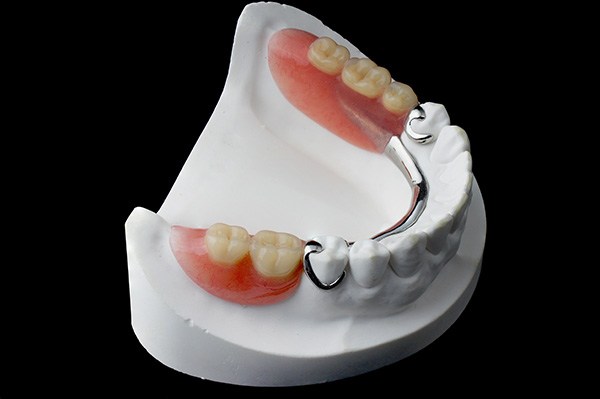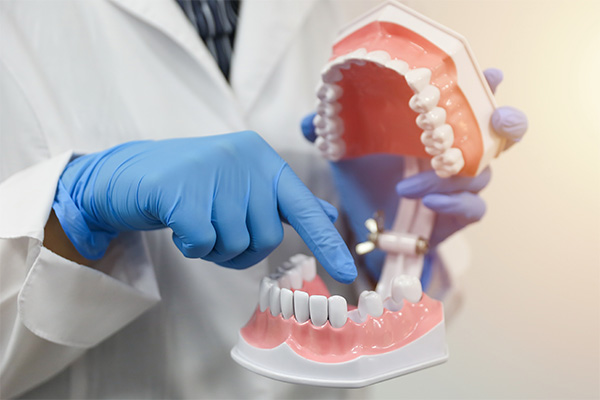Oral Hygiene Basics Rosenberg, TX
Beyond brushing your teeth twice a day, you might not think much about oral hygiene basics. However, the leading causes of tooth loss in older adults are gum disease and tooth decay, which are both caused by poor oral hygiene. Oral hygiene basics, such as proper tooth brushing and flossing, can help prevent these conditions and many other common dental problems.
Dental care is available at KRB Dentistry in Rosenberg and the surrounding area. Contact us at (832) 361-3929 to schedule an appointment.
The Importance of Good Oral Hygiene
The teeth are connected to the jaw bone in the face through the tooth's roots. These roots are deeply ingrained in the bone to provide structure and strength to the mouth, which is important for biting, chewing, and speaking. Without an oral hygiene routine, the teeth risk the buildup of bacteria, otherwise known as tartar and plaque. This appears as a yellowish buildup on the teeth around the gum line.
Over time, if someone does not brush, floss, and rinse at home regularly and maintain their regular dental checkups, this buildup can start to affect the smile. If left alone, the bacteria can get beneath the gums and create dental pockets. These pockets occur when the gum tissue starts to pull away from the teeth. This may also cause gum recession, which may eventually expose the tooth roots. If the bacteria have access to the roots beneath the gum line, they may gain access to the body's bloodstream.
Once the bacteria can enter the bloodstream, the entire body may be at risk. Starting and following an oral hygiene routine will help prevent the buildup of bacteria and plaque on the teeth and keep the body safe. To protect the health of the smile is to protect the overall health of the body.
“To protect the health of the smile is to protect the overall health of the body.”
Helping Family Members With Oral Hygiene
Since oral health can affect body health, it is important to teach children and others about oral hygiene. Someone should talk to family members about the importance of dental care. If any family member has anxiety about visiting the dentist, speak to the dental team about options to make the experience less intimidating. Either way, every member of the family should learn about oral hygiene and what they can do to take care of their smile.
Children and adults should have similar oral hygiene routines. There is a common misconception that a child's oral health care is different or perhaps not as important since their baby teeth will fall out. Even though baby teeth are replaced by larger adult teeth, they are still connected to the jaw bone in the same way. With children, this buildup on baby teeth can weaken their adult teeth for the rest of their lives, putting them at a higher risk of decay and disease later. This is why dental professionals recommend that children start visiting their dentist regularly from an early age.
No matter the age, everyone should prioritize oral health and establish an oral hygiene routine to keep themselves healthy. As they age, however, their smile may indeed have different needs. Along the way, they will have the help and guidance of our dental team, so they should be open with them and discuss their concerns.
“If any family member has anxiety about visiting the dentist, speak to the dental team about options to make the experience less intimidating.”
What to Include in a Dental Care Routine
A dental care routine will depend on the individual's current oral health needs, but in general, most routines should include the following:
Brushing
Everyone should brush their teeth twice a day with a dentist-recommended toothbrush and toothpaste. The right toothbrush should have soft bristles to prevent damage to the gums and tooth enamel. When brushing, use a small, pea-sized amount of toothpaste and move the brush against the teeth in a gentle circular motion. Move the toothbrush along the rows of the teeth at a 45-degree angle to brush at the gum line as well. Dental professionals recommend brushing for about two minutes. Make sure to get the top and bottom rows, as well as all surfaces of the teeth.
Flossing
After brushing the surface of the teeth, everyone needs to floss to clean the spaces between their teeth. Flossing should be done at least once a day to remove anything that may have gotten stuck between the teeth and reduce the possibility of buildup. To floss, hold a piece of dental floss tightly between the hands with the thumb and index finger. Gently slide the floss up and down between the teeth, curving it at the base of each tooth to get beneath the gum line.
Rinsing
After flossing, everyone should rinse with a dentist-approved mouthwash. Most mouthwashes will contain a small amount of fluoride to help keep the teeth healthy between regular dental checkups. Depending on the circumstances, the dentist may make a recommendation. Some people may need a mouthwash to help with bad breath, dry mouth, or gum disease. To rinse, follow the guidelines on the mouthwash bottle. Typically this means using a small amount of mouthwash poured into a clean cup to swish around the mouth for about a minute before spitting it out.
“A dental care routine will depend on current oral health needs.”
Check out what others are saying about our dental services on Yelp: Oral Hygiene Basics in Rosenberg, TX
How to Keep the Smile Healthy and Prevent Tooth Decay
Following a dental hygiene routine with at-home care and regular dental checkups will help keep the smile healthy and prevent tooth decay, but other things can be done as well. Certain foods and drinks, such as sodas and sugary sweets, can put the teeth at risk. The ingredients in these food items can attack the enamel on the teeth and weaken it, making them more susceptible to bacteria and decay.
Rather than eating and drinking sugary or acidic substances, everyone should try things like cheese, fruits, vegetables, and green and black teas. Cheese can combat erosion of the enamel, high-fiber fruits and vegetables can stimulate saliva production to help remove particles from the teeth, and certain teas combat bacteria that cause plaque. Plus, these healthy food items are good for the body, too, so while they are protecting the smile from tooth decay, they can give the body the nutrition it deserves.
“Following a dental hygiene routine with at-home care and regular dental checkups will help you keep the smile healthy and prevent tooth decay.”
Questions Answered on This Page
Q. Why is good oral hygiene important?
Q. Why is it important to educate the family about oral healthcare?
Q. What should a home oral care routine include?
Q. How can a person's diet help with tooth decay?
Q. What are the best foods to eat to prevent tooth decay?
People Also Ask
Q. How do lifestyle choices affect dental health?
Q. What should patients do if they have sensitive teeth?
Q. What is the importance of having a routine dental checkup?
Preventing Tooth Decay
In addition to regular brushing and flossing, other good habits that help prevent tooth decay include eating a healthy diet, drinking lots of water, and keeping toothbrushes clean.
Eat Foods That Promote Good Oral Health
Some foods can help clean teeth and fight plaque buildup. For example, fiber-rich fruits and vegetables can help keep teeth and gums clean. They also help increase the flow of saliva, which is important for washing away bacteria. In addition, saliva helps reduce the effects of the acids that attack teeth. It also contains trace amounts of the minerals calcium and phosphate, which can help restore areas of the teeth that have been damaged by acid.
Calcium-rich foods such as cheese and other dairy products can also help restore minerals into teeth. Also, drink black and green tea, as these contain compounds that inhibit the growth of bacteria in the mouth. Chewing sugarless gum can also help increase saliva production and help remove food particles from between teeth.
Keep Toothbrushes Clean
When finished brushing, rinse any residue off of the toothbrush. Set the toothbrush upright and allow it to air-dry. Keeping the toothbrush in a cabinet or enclosed container can promote bacteria growth. Replace the toothbrush every three months. Replace it sooner if the bristles become bent or frayed. If the bristles are bent, it could mean that the brushing is too hard.
Do not share a toothbrush with anyone. While sharing the toothbrush of a significant other might seem as harmless as kissing, health-wise, the two are very different. When kissing, it is mostly saliva that is shared. However, when sharing a toothbrush, bacteria and viruses from the other person are introduced into the bloodstream. This can be harmful to overall health, especially if the other person has gingivitis or gum disease.
“Limiting the consumption of sugary foods and drinks can help prevent tooth decay.”
Frequently Asked Questions
Q. Why are regular dental visits important?
A. Regular dental checkups can help identify minor dental issues before they become more serious. Treatment is likely to be simpler when problems are caught early. For example, when tooth decay and gum disease are treated early, they can often be reversed before significant tooth damage occurs. Untreated gum disease and tooth decay can lead to tooth loss and other major problems.
Q. Do I still need to see a dentist if I'm not having any problems?
A. Yes. Even if you are not experiencing any symptoms, you can still have dental issues such as tartar buildup and tooth decay. A dentist will be able to identify these issues before they become more serious.
Q. What are some signs that I should see a dentist?
A. If you experience swollen or sensitive gums, bad breath, pain or swelling in your mouth, difficulty chewing, or sensitivity to hot or cold foods, contact a dentist. These symptoms may be an indication of something more serious.
Q. Why are dental X-rays necessary?
A. Dental X-rays help dentists see tooth problems, including cracks and tooth decay, that are not visible to the naked eye. Expect to have X-rays taken if you have not been to the dentist in a while. Your dentist will take as few X-rays as possible to limit your radiation exposure. Let your dentist know if you are pregnant or may be pregnant, as pregnant women should not have X-rays taken.
Q. Is fluoride necessary for teeth?
A. Fluoride strengthens teeth while preventing decay. The American Dental Association (ADA), the American Academy of Pediatrics (AAP), and the Centers for Disease Control and Prevention (CDC) alike agree that children should use fluoride toothpaste for brushing. It also benefits adults.
Dental Terminology
Call Us Today
Before scheduling an appointment, be sure to make notes of any current at-home oral hygiene routines to be able to talk to the dental team about how to improve them. Scheduling an appointment and following through with dental checkups is a great start to a lifetime of healthy smiles.
When scheduling a dental appointment, take this time to make the dental team aware of any concerns and tell them if they need to take any steps to make the experience more enjoyable. To schedule an appointment, call us at 832-361-3929 today!
Helpful Related Links
- American Dental Association (ADA). Glossary of Dental Clinical Terms. 2024
- American Academy of Cosmetic Dentistry® (AACD). Home Page. 2024
- WebMD. WebMD’s Oral Care Guide. 2024
About our business, license, and website security
- KRB Dentistry was established in 2014.
- We accept the following payment methods: American Express, Cash, Discover, MasterCard, and Visa
- We serve patients from the following counties: Fort Bend County
- We serve patients from the following cities: Rosenberg, Richmond, Cumings, Pecan Grove, and Pleak
- TX (License #19523). View License Information and Specifics
- National Provider Identifier Database (1124126479). View NPI Registry Information
- Healthgrades. View Background Information and Reviews
- Norton Safe Web. View Details
- Trend Micro Site Safety Center. View Details
Back to top of Oral Hygiene Basics





